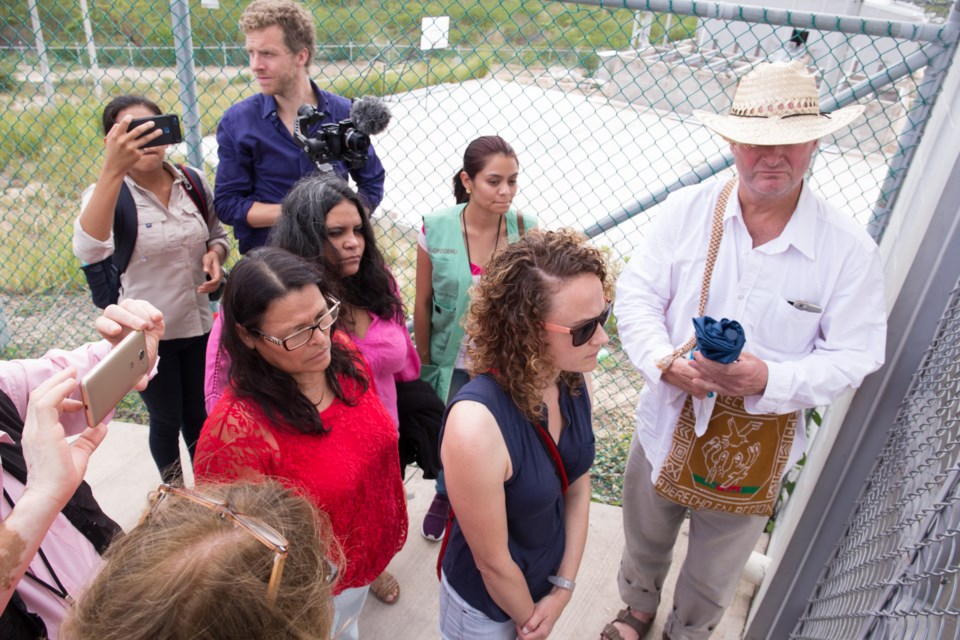It was a mother’s love that finally convinced the guards at a Honduran military prison to let Elmvale resident Janet Spring inside to see her son-in-law.
Spring was part of a delegation of Canadians in Honduras to put pressure on the military and the government to free Edwin Espinal and other political prisoners detained since the violent elections of November 2017.
Espinal is Karen Spring’s partner, and the son-in-law of Janet Spring. Espinal was arrested on Jan. 19, on trumped up charges of criminal drug activity. He is a human rights activist in Honduras and took part in protesting following the election of 2017. He is being held in La Tolva prison, a high security, military-run prison that is overcrowded and unsanitary.
Janet and Karen Spring and the rest of the delegation went to La Tolva prison on Wednesday (May 23), but were denied entry. The Springs haven’t heard from Espinal in 45 days.
According to Janet Spring, the delegation returned to La Tolva on Thursday (May 24). They had submitted all their travel documents and plane ticket information previously to the National Penitentiary Institute and the Canadian Embassy. They were told the information was in order, but it had to be signed by the prison director. The director was not at the prison and the sub-director couldn’t reach him. Janet, told CollingwoodToday she pleaded with the sub-director, asking if he had a mother who would be devastated not to be allowed to see him. Still, Janet was told “no.”
A female Honduran human rights lawyer named Priscilla was travelling with the group. When the delegation walked away from the prison gates, she stayed behind and talked to the sub-director, a civilian employed at the prison. According to Janet, Priscilla asked the man to consider the grief of a mother who travelled from Canada to see her son, just to make sure he was okay and to give him a meal she had brought.
Janet was allowed in, but only her. She was given ten minutes to sit at a table with Espinal.
“He ate quickly,” she said. “He’s lost a lot of weight. He said he hadn’t had any vegetables, so he really loved the vegetables I brought him.”
Janet said Espinal told her he tries to keep to himself in the prison. He’s in there with inmates who have been sentenced to 1,000 years in prison for violent crime and murder.
As Janet left and returned to the prison office where she collected her things, she looked up to see the delegation running toward her. The sub-director had let them in too.
She and the rest of the delegates (seven Canadians) were given an hour to spend with Espinal. It was pouring rain, but hardly anybody noticed.
“We were totally amazed,” said Janet. “We are the first delegation from anywhere to be let into a military prison in Honduras.”
She said Espinal’s greatest struggles are for clean water, and trying to sleep on a worn, thin foam pad laid on the concrete. She brought him two bottles of drinking water and Espinal’s lawyers are working to get him a mattress.
After the visit, the group returned to the city for meetings with the United Nations High Commissioner, the Canadian and US embassies and other government officials.
Most of the delegation returned to Canada Monday, May 28. Karen stayed behind to continue her work for Honduran human rights and the freedom of political prisoners.
The group will be planning another trip to Honduras in August, and they are working on a town meeting and presentation of their last trip to the community in the next couple weeks.
